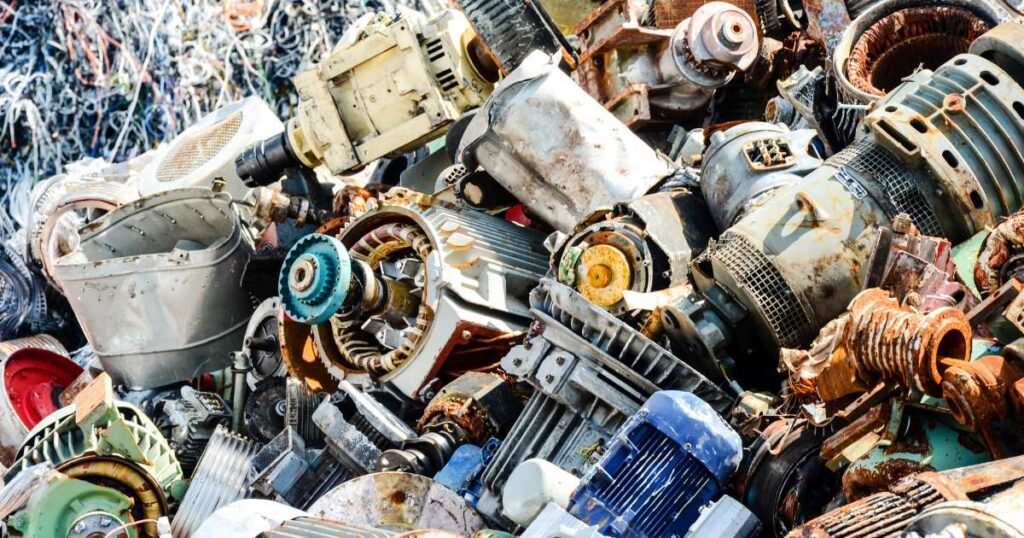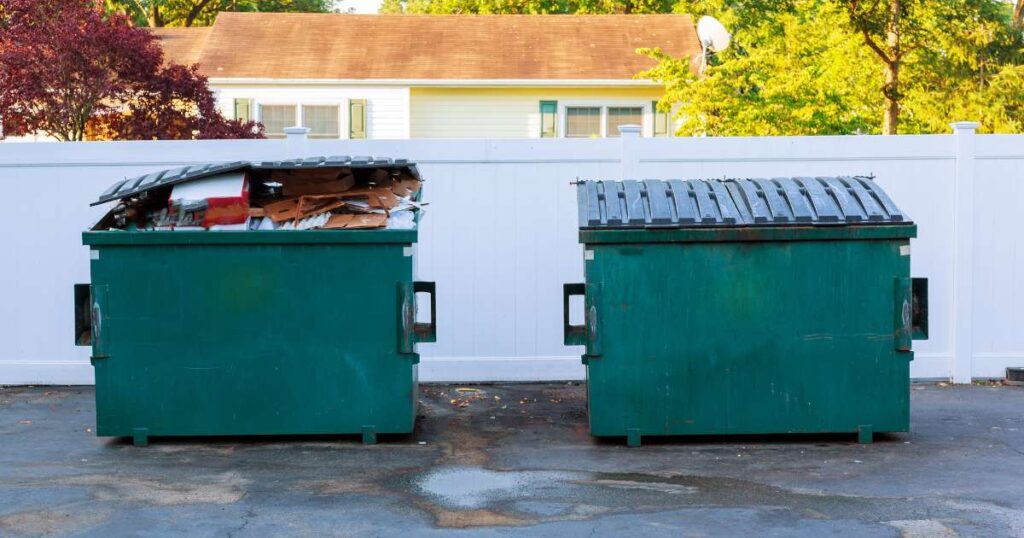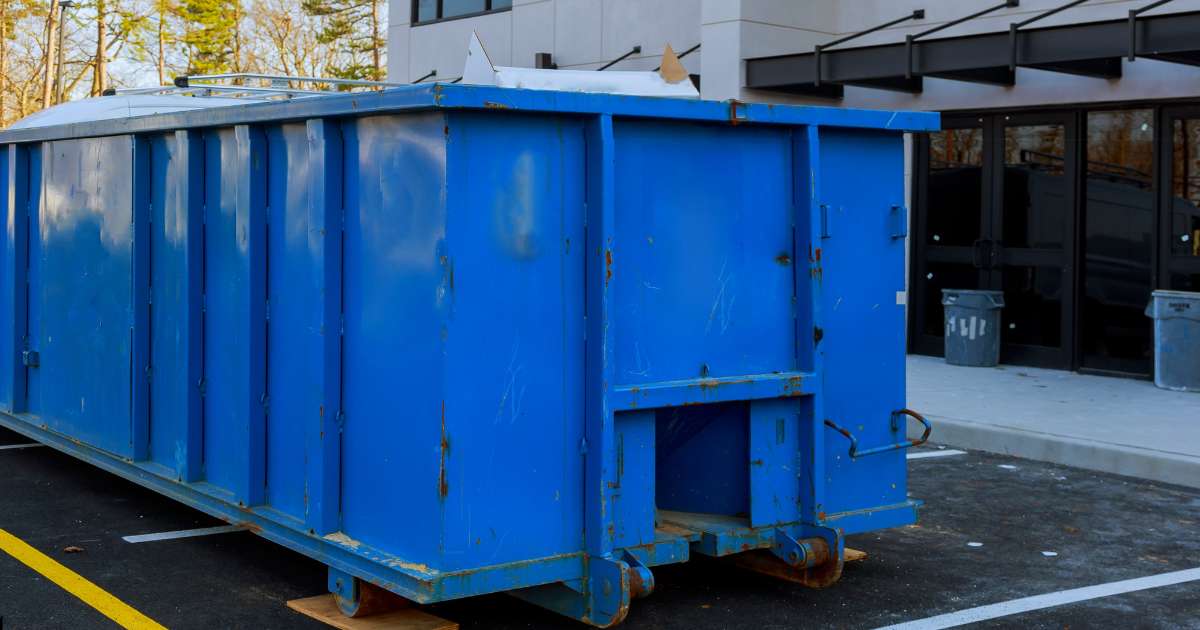Illegal dumping in dumpsters is a widespread issue that affects communities, businesses, and the environment. It involves the unauthorized disposal of waste in dumpsters that are not owned or rented by the person disposing of the waste.
This practice not only violates property rights but also leads to a range of negative consequences, including environmental degradation, legal repercussions, and financial burdens.
Understanding what constitutes illegal dumping, the various forms it can take, and the significant impact it has on communities is essential for preventing this unlawful activity and promoting responsible waste management.
In this guide, we will explore the complexities of illegal dumping in dumpsters, its consequences, and the steps that can be taken to prevent it.
Types of Illegal Dumping
Illegal dumping can take on various forms, each with specific consequences:
Unauthorized Use of a Dumpster:
This happens when someone disposes of waste in a dumpster that doesn’t belong to them. For proper guidelines on using dumpsters, check out our Dumpster Rental Process. For instance, a person might spot a dumpster at a construction site or outside a business and choose to dump their household or commercial waste there. This is illegal because it involves using someone else’s property without permission, which amounts to theft of services.
Disposing of Hazardous Materials:
Even if you have legal access to a dumpster, it’s illegal to place hazardous materials in it without following the correct disposal guidelines. Hazardous materials such as chemicals, pesticides, paint, batteries, and other items can pose risks to the environment and human health if not disposed of properly. Dumping these materials in a regular dumpster can lead to severe legal consequences and environmental harm.

Dumping in Non-Designated Dumpsters:
Some dumpsters are designated for specific types of waste, such as recyclables or organic materials. Dumping non-conforming waste in these dumpsters is illegal and can contaminate recyclables or disrupt composting processes. This act undermines waste management efforts and can lead to additional sorting and disposal costs.
Commercial Waste in Residential Dumpsters:
Businesses sometimes illegally dump their waste in residential dumpsters to avoid disposal fees. This practice can lead to overflowing dumpsters, disputes between neighbors, and additional costs for the residential property owner.
Illegal Dumping in Public Dumpsters:
Public dumpsters, often provided by municipalities for community use, are sometimes misused by people dumping large quantities of waste or items that are not permitted, such as construction debris or furniture. This misuse can result in fines and additional cleanup costs for the municipality, which may be passed on to taxpayers.
For tips on managing public waste more effectively, read the hidden dangers of clutter and why you should consider dumpster rental.
Consequences of Illegal Dumping
The consequences of illegal dumping are far-reaching and can affect various stakeholders:
Environmental Consequences:
When hazardous or non-biodegradable materials are illegally dumped, they can leach harmful chemicals into the soil and groundwater, leading to long-term environmental degradation.
Wildlife may ingest or become entangled in improperly disposed waste, leading to injury or death. The accumulation of waste in non-designated areas can also lead to unsightly and unsanitary conditions, attracting pests and contributing to the spread of diseases.
Legal Consequences:
Illegal dumping is a criminal offense in many jurisdictions. Depending on the seriousness of the offense, penalties may include fines, community service, or even imprisonment. Repeat offenders or those caught dumping hazardous materials can face particularly harsh penalties. Additionally, businesses caught engaging in illegal dumping may lose their operating licenses or face civil lawsuits.
Financial Consequences:
The financial burden of illegal dumping falls not only on the person who rents the dumpster but also on the broader community. Dumpster renters may be charged extra fees for overfilling or improper disposal, which can disrupt budgets for projects or events. Municipalities often incur significant costs in cleaning up illegal dumpsites, which can lead to higher taxes or reduced public services.
To understand more about the costs associated with dumpster rentals, check out our article on dumpster rental cost weekly.

Social Consequences:
Illegal dumping can strain relationships within communities. For example, a neighbor who repeatedly dumps waste in someone else’s rented dumpster can cause disputes and resentment. Additionally, illegal dumpsites can lower property values in the area, leading to economic losses for homeowners and businesses.
Preventing Illegal Dumping
Effective strategies to prevent illegal dumping include:
Physical Security Measures: Installing locks on dumpsters is one of the most effective ways to prevent unauthorized access. Dumpster locks are available in various designs, some of which are compatible with standard waste collection services, allowing the dumpster to be emptied without removing the lock. For tips on how to prevent unauthorized dumpster use, visit Prevent Unauthorized Dumpster Use.
Surveillance and Signage: Surveillance cameras placed near dumpsters can deter illegal dumpers by capturing evidence that can be used to identify and prosecute offenders. Clear signage that states the penalties for illegal dumping, along with instructions on proper waste disposal, can also discourage would-be dumpers.
Community Education: Educating the public about the importance of proper waste disposal and the consequences of illegal dumping is essential. Public awareness campaigns can inform people about legal disposal options, such as municipal waste collection services, recycling centers, and hazardous waste disposal facilities.
Collaboration with Authorities: Working closely with local law enforcement and waste management authorities can help in the prompt reporting and investigation of illegal dumping incidents. Some communities have established hotlines or online reporting systems where residents can report illegal dumping anonymously.
Encouraging Proper Disposal: Providing convenient and affordable waste disposal options can reduce the temptation to illegally dump waste. This includes offering curbside collection services for bulky items, organizing community clean-up events, and providing easy access to recycling and hazardous waste disposal facilities.

Legal Implications of Illegal Dumping
Understanding the legal framework surrounding illegal dumping is crucial for both individuals and businesses:
Federal and State Laws: In the United States, illegal dumping is governed by a combination of federal, state, and local laws. Federal laws, such as the Resource Conservation and Recovery Act (RCRA), regulate the disposal of hazardous waste, while state and local laws address other types of illegal dumping. Penalties can vary widely depending on the location and the nature of the waste dumped.
Civil Liability: In addition to criminal penalties, individuals or businesses responsible for illegal dumping may also face civil lawsuits. Property owners affected by illegal dumping can sue for damages, including the cost of cleanup and any decline in property value. Businesses may also be held liable for any environmental harm caused by illegal dumping.
Reporting and Prosecution: Many jurisdictions have established specific procedures for reporting illegal dumping. Reports can lead to investigations by local authorities, who may use surveillance footage, eyewitness testimony, and other evidence to identify and prosecute offenders. In some cases, rewards are offered for information leading to a conviction.
Frequently Asked Question
What is considered illegal dumping in dumpsters?
Illegal dumping in dumpsters refers to disposing of waste in a dumpster that you do not own, rent, or have permission to use. It also includes placing prohibited items in a dumpster, such as hazardous materials, or dumping commercial waste in residential dumpsters.
Why is illegal dumping in dumpsters a serious issue?
Illegal dumping is serious because it can lead to environmental harm, legal penalties, and financial burdens. Hazardous materials can contaminate soil and water, while those caught illegally dumping may face fines, legal action, and even jail time.
What are the environmental impacts of illegal dumping?
Illegal dumping can lead to soil and water contamination, harm to wildlife, and the creation of unsightly and unsanitary conditions. Hazardous waste dumped illegally can have long-lasting negative effects on the environment.
What legal consequences can I face for illegal dumping?
Penalties for illegal dumping vary by location and the severity of the offense. They can include fines, community service, and imprisonment. Businesses may also face additional penalties, such as losing their operating licenses or being subject to civil lawsuits.
Can I be fined for disposing of prohibited items in a rented dumpster?
Yes, disposing of prohibited items in a rented dumpster can result in fines and additional charges from the dumpster rental company. Prohibited items typically include hazardous waste, electronics, tires, and other materials that require special disposal methods.
How can I prevent illegal dumping in my rented dumpster?
To prevent illegal dumping, consider securing your dumpster with a lock, installing surveillance cameras, placing clear signage, and educating your community about the consequences of illegal dumping. These measures can help deter unauthorized use of your dumpster.
What should I do if I witness illegal dumping?
If you witness illegal dumping, report it to local authorities or the property owner immediately. Providing details such as the time, location, and any identifying information about the individual or vehicle involved can help in the investigation.
Is it illegal to dump commercial waste in a residential dumpster?
Yes, it is illegal to dump commercial waste in a residential dumpster without permission. This practice can result in fines and other penalties, as it violates waste management regulations and can lead to overflowing dumpsters and additional costs for residents.
Conclusion
Illegal dumping in dumpsters is a significant issue that poses environmental, legal, financial, and social risks. By understanding what constitutes illegal dumping and implementing preventive measures, individuals and communities can help protect property rights, the environment, and public health.
Addressing illegal dumping requires a collective effort, including education, enforcement, and community involvement, to ensure that waste is disposed of legally and responsibly.
